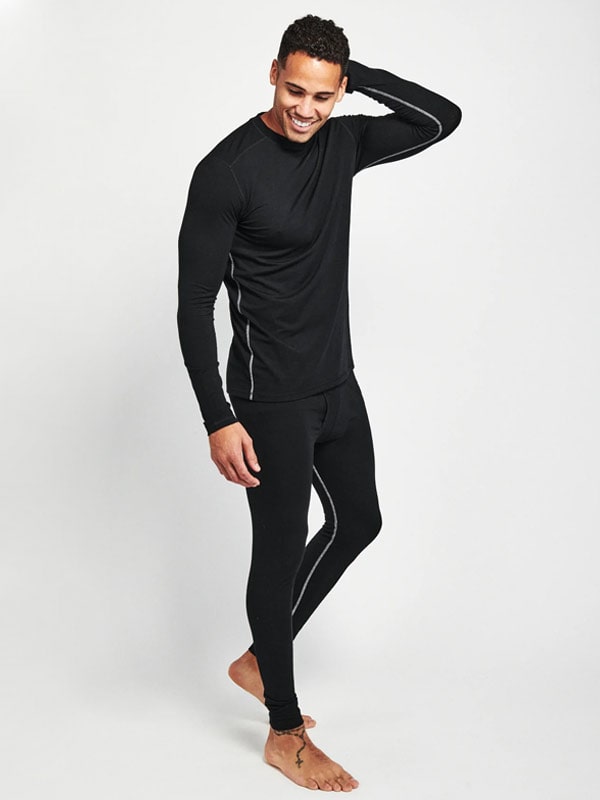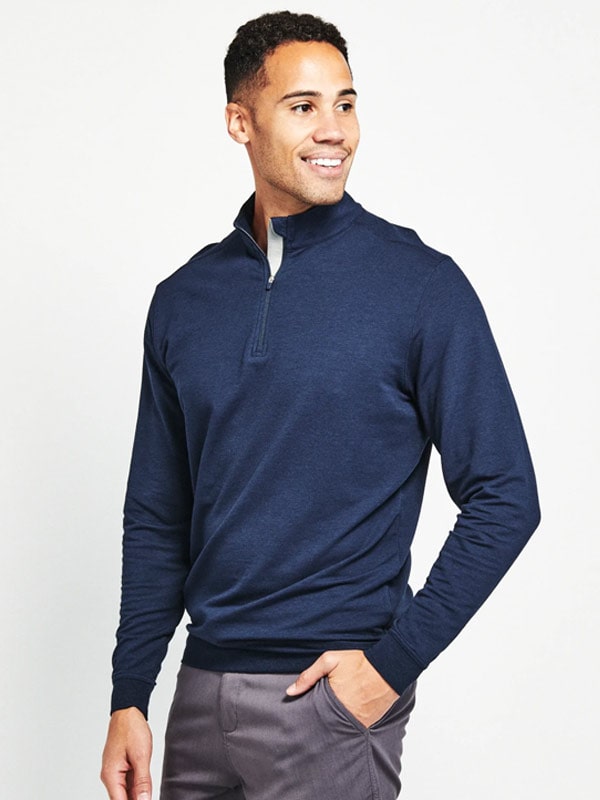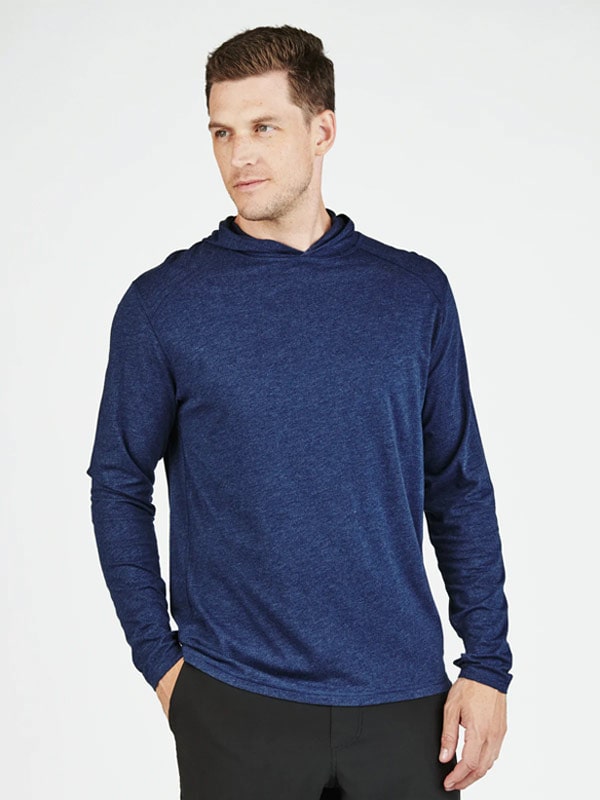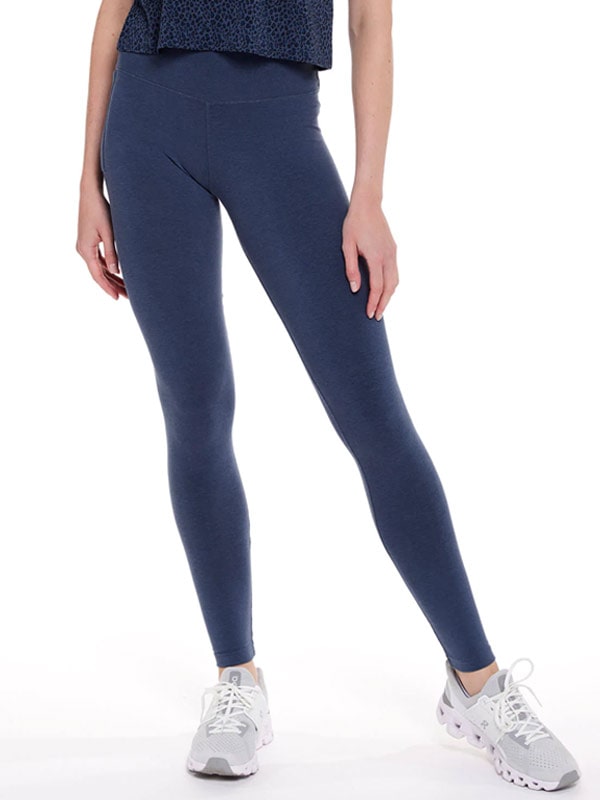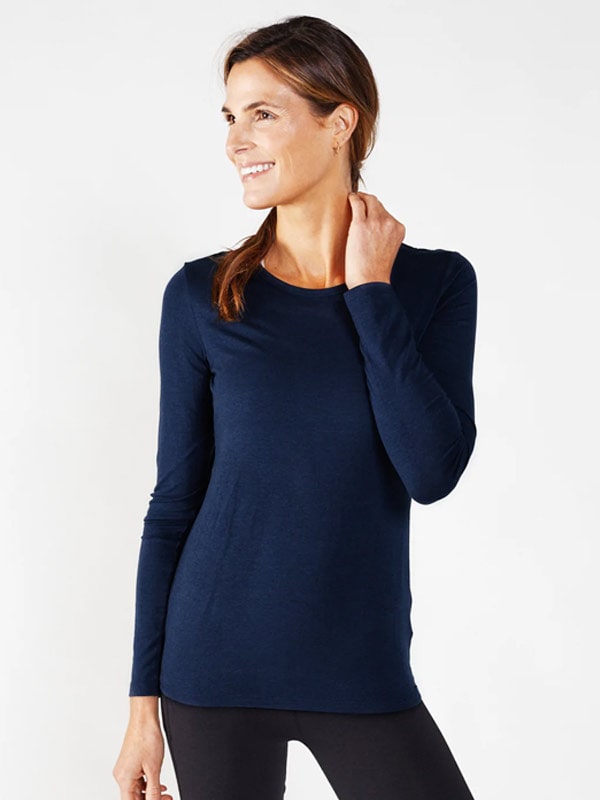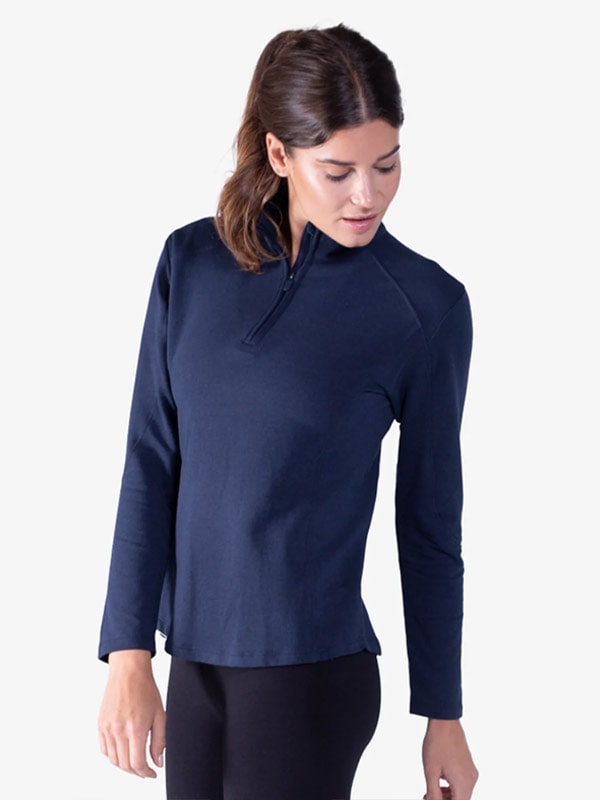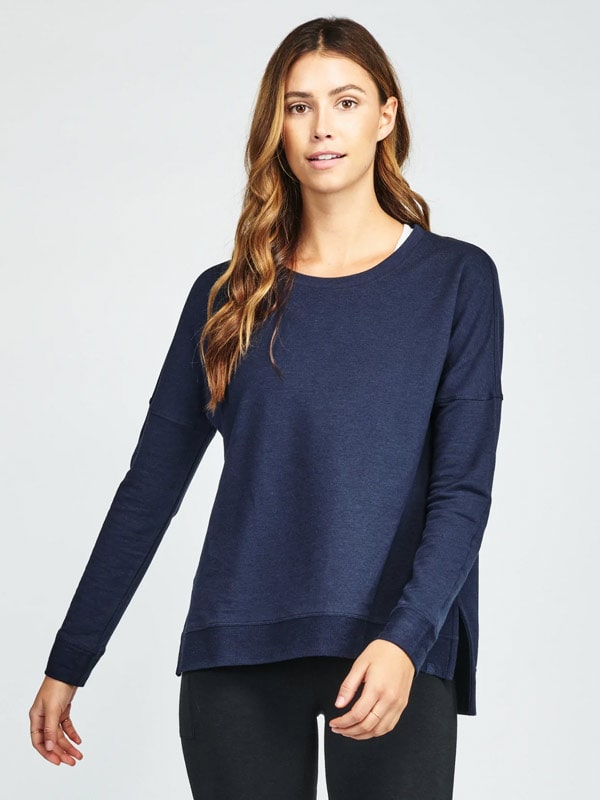Sustainability in Fashion: Eco-Friendly Lightweight Long Sleeve Shirt Options
In recent years, the fashion industry has seen a significant shift towards sustainability, driven by a growing demand for eco-friendly and ethical choices. This movement has paved the way for innovative solutions in clothing, such as lightweight long sleeve shirts crafted from sustainable materials. Brands are now prioritizing processes that minimize environmental impact, utilizing fabrics like organic cotton, Tencel, and recycled materials to create breathable clothing that is both stylish and responsible. In this exploration, we will delve into the world of fashionable eco-friendly options, highlighting sustainable brands that offer layering shirts perfect for transitional seasons, all while empowering consumers to make environmentally conscious decisions without compromising on comfort or style.
 |
|
| Pimaluxe Long Sleeve T-Shirt | |
 |
|
| Carrollton Long Sleeve Fitness T-Shirt |
The Rise of Sustainable Fashion
Understanding Sustainable Fashion
Sustainable fashion is an approach to clothing production that prioritizes environmental and social responsibility. It involves using eco-friendly materials, such as organic cotton, Tencel, and recycled fabrics, to minimize the environmental footprint of clothing. This approach also emphasizes ethical labor practices, ensuring fair wages and safe working conditions for all workers involved in the production process. The goal is to create a more equitable system that takes into account the entire lifecycle of a garment—from sourcing raw materials to manufacturing, distribution, and eventual disposal or recycling. In recent years, consumer awareness has increased, and people are becoming more conscious of how their purchasing decisions impact the planet and society. As a result, sustainable fashion has gained momentum, pushing brands to adopt more environmentally friendly practices and offer products, like eco-friendly shirts and lightweight long sleeve options, that align with the values of today's eco-conscious consumers.
Increasing Demand for Eco-Friendly Shirts
The demand for eco-friendly shirts has surged as consumers become increasingly aware of the environmental impact of their clothing choices. This shift in consumer behavior is driven by a desire for products that align with personal values of sustainability and responsibility. Lightweight long sleeve shirts made from sustainable materials, such as organic cotton and Tencel, are particularly popular for their versatility and comfort. These shirts offer the benefits of breathability and softness while maintaining a low environmental footprint. As more people seek out these sustainable fashion options, brands are responding by expanding their eco-friendly product lines and investing in sustainable production techniques. This growing demand is not just a trend but a movement towards a more conscious way of living, where consumers actively participate in reducing their ecological impact. By choosing eco-friendly shirts, consumers are making a statement about their commitment to a more sustainable future.
Benefits of Sustainable Brands
Sustainable brands offer numerous benefits that appeal to eco-conscious consumers and the environment alike. Firstly, these brands focus on reducing their ecological footprint by using sustainable materials such as organic cotton and recycled fabrics. These materials require fewer resources, reduce pollution, and often involve less water usage compared to conventional textiles. Additionally, sustainable brands often prioritize ethical labor practices, ensuring fair wages and safe working conditions, which supports a more equitable global economy. For consumers, choosing sustainable brands means accessing high-quality, durable products that are designed to last, reducing the need for frequent replacements and thus minimizing waste. Moreover, supporting sustainable brands sends a powerful message that consumers value environmental responsibility and ethical practices, encouraging more companies to adopt similar measures. Furthermore, the innovation within sustainable fashion often results in unique, stylish designs that do not compromise on aesthetics. Overall, sustainable brands present a compelling option for those looking to make a positive impact through their purchases.
Exploring Eco-Friendly Materials
Organic Cotton Shirts Explained
Organic cotton shirts are a cornerstone of sustainable fashion, offering a more environmentally friendly alternative to conventional cotton. Organic cotton is grown without the use of synthetic pesticides, fertilizers, or genetically modified seeds. This method of cultivation significantly reduces environmental impact, conserving biodiversity and promoting healthier soil. For consumers, organic cotton shirts provide a softer and more breathable experience, making them ideal for comfortable, everyday wear. Furthermore, the production of organic cotton supports ethical farming practices, often improving the livelihoods of farmers through fair trade agreements. These shirts are also less likely to irritate sensitive skin, as they are free from harsh chemicals typically used in conventional cotton processing. By choosing organic cotton shirts, consumers support sustainable agriculture and contribute to reduced pollution levels in cotton-producing regions. As awareness of these benefits grows, organic cotton shirts continue to gain popularity, symbolizing a commitment to environmentally conscious living.
Tencel Fashion Benefits
Tencel, a brand name for lyocell and modal fibers, is a standout material in sustainable fashion due to its eco-friendly production process and exceptional qualities. Made from sustainably sourced wood pulp, Tencel fibers are produced through a closed-loop process that recycles water and solvents, minimizing environmental impact. This makes Tencel an attractive choice for eco-conscious consumers seeking sustainable fashion options. In terms of functionality, Tencel offers superior breathability and moisture-wicking properties, making it ideal for lightweight long sleeve shirts and other clothing items. Its soft texture and smooth drape provide comfort and style, appealing to those who prioritize both aesthetics and sustainability. Additionally, Tencel's strength and durability mean garments maintain their shape and quality over time, reducing the need for frequent replacements. As awareness of Tencel's benefits grows, more brands are incorporating this versatile material into their collections, offering consumers fashionable eco-friendly options that align with their values.
The Impact of Recycled Fabrics
Recycled fabrics are a pivotal component of sustainable fashion, offering a way to reduce waste and conserve resources. These fabrics are made from repurposed materials, such as plastic bottles or pre-consumer textile waste, which are transformed into new fibers. By using recycled fabrics, the fashion industry can decrease its reliance on virgin resources, thereby reducing the environmental burden associated with fabric production. This process not only diverts waste from landfills but also cuts down on energy consumption and greenhouse gas emissions. For consumers, clothing made from recycled fabrics presents a responsible choice that aligns with sustainable living principles. These garments often match the quality and performance of those made from traditional materials, ensuring style and functionality without compromise. With the growing focus on circular fashion practices, recycled fabrics have emerged as a key solution in minimizing the industry's environmental impact, supporting the transition to a more sustainable and resource-efficient future.
 |
|
| NOLA Long Sleeve T-Shirt | |
 |
|
| Longline Long Sleeve T-Shirt |
Fashionable Eco-Friendly Options
Versatile Layering Shirts
Versatile layering shirts have become a staple in sustainable fashion, offering both practicality and style for various occasions. These lightweight long sleeve shirts are crafted from eco-friendly materials such as organic cotton, Tencel, and recycled fabrics, which ensure breathability and comfort. Their adaptability makes them suitable for transitional seasons, where layering is key to maintaining the right level of warmth and style. By providing a base or mid-layer, these shirts can be paired with other wardrobe items, allowing for a seamless transition from casual daywear to more polished evening looks. The focus on sustainable production adds an extra layer of value, as consumers can enjoy fashion that aligns with their environmental values. With a range of cuts, colors, and styles available, versatile layering shirts cater to diverse tastes and preferences, proving that sustainable fashion can be both functional and chic. As a result, they have become an essential part of the eco-conscious consumer's wardrobe.
Breathable Clothing for Comfort
Breathable clothing is essential for comfort, especially when navigating varying climates or engaging in physical activities. Sustainable fashion delivers on this need by offering eco-friendly shirts crafted from materials like Tencel, organic cotton, and bamboo viscose. These fabrics inherently possess moisture-wicking and temperature-regulating properties, ensuring that wearers remain dry and cool throughout the day. The structure of these materials allows for better air circulation, making them ideal for lightweight long sleeve shirts that cater to both style and function. Additionally, the softness and smooth texture of these fabrics enhance the overall wearing experience, minimizing skin irritation and maximizing comfort. As consumers become more attuned to the benefits of breathable clothing, sustainable brands continue to innovate, creating garments that not only prioritize environmental responsibility but also meet the demand for high-performance wear. Ultimately, breathable clothing represents a key intersection of comfort, style, and sustainability, appealing to those who value both practicality and eco-conscious living.
Lightweight Long Sleeve Shirt Trends
Lightweight long sleeve shirts are making waves in sustainable fashion, blending functionality with modern trends. As the demand for eco-friendly apparel grows, these shirts have become a wardrobe staple, appreciated for their adaptability and comfort. Current trends highlight the use of innovative materials like organic cotton and Tencel that provide breathability and a soft touch, appealing to both eco-conscious and fashion-forward consumers. Versatile cuts and neutral colors dominate the market, allowing these shirts to seamlessly integrate into any wardrobe and pair effortlessly with various outfits. Additionally, sustainable brands are embracing minimalist designs and subtle detailing, making these shirts suitable for both casual settings and more formal occasions. The emphasis on sustainability is complemented by the growing trend of transparency in production processes, with brands showcasing their commitment to ethical sourcing and reduced environmental impact. Lightweight long sleeve shirts are thus not only fashionable choices but also representations of a more conscious approach to clothing consumption.
Empowering Responsible Consumer Choices
Making Informed Purchases
Making informed purchases is a crucial aspect of adopting a sustainable lifestyle, particularly in fashion. Consumers today have the opportunity to support brands that align with their values by choosing products that are environmentally friendly and ethically produced. To do this, it is essential to research the materials and production practices of brands. Look for certifications or information on organic cotton, Tencel, and recycled fabrics, which indicate a commitment to sustainability. Additionally, consider the brand's transparency regarding labor practices and their overall environmental impact. Understanding the lifecycle of a product—from sourcing to manufacturing to disposal—can help consumers make decisions that reduce their ecological footprint. By prioritizing quality over quantity, consumers can invest in durable, versatile pieces like eco-friendly lightweight long sleeve shirts that last longer and reduce the need for frequent replacements. Ultimately, informed purchasing empowers individuals to contribute positively to the environment and advocate for more responsible industry practices.
Combining Style and Sustainability
Combining style and sustainability is increasingly achievable as more brands embrace eco-friendly fashion practices. Consumers no longer have to sacrifice aesthetics for environmental responsibility. Modern sustainable brands offer a wide range of stylish options crafted from materials like organic cotton, Tencel, and recycled fabrics. These materials not only reduce environmental impact but also provide comfort and durability. Designers are creatively integrating sustainable elements into their collections, focusing on versatile pieces that cater to various tastes and occasions. This means consumers can enjoy fashionable eco-friendly options that reflect their personal style while supporting the planet. By choosing garments that embody both style and sustainability, consumers can make a statement about their values and influence the fashion industry to prioritize ethical practices. This shift encourages other brands to innovate and adopt sustainable methods, fostering a more responsible and conscientious fashion landscape that benefits both people and the environment.
The Future of Eco-Conscious Fashion
The future of eco-conscious fashion looks promising as awareness and demand for sustainable options continue to grow. As consumers become more informed about the environmental and social impacts of their clothing choices, they are driving change within the industry. Brands are responding by embracing innovative materials, such as organic cotton and Tencel, and adopting circular economy principles that focus on reducing waste and promoting recycling. Technological advancements also play a pivotal role in this transformation, with developments in fabric production and sustainable practices leading to more efficient processes. Moreover, collaborations between brands, consumers, and policymakers are fostering a more sustainable fashion ecosystem. This collaborative approach encourages transparency and accountability, setting new standards for environmental and social responsibility. As eco-conscious fashion becomes mainstream, it has the potential to redefine industry norms, ensuring that sustainability is not just an option but a fundamental aspect of fashion design and production, paving the way for a more sustainable future.


